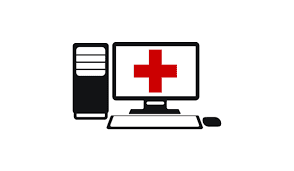Seven Data Wiping Tips for
Healthy PC
Your
computer is most likely the most important piece of equipment in your company. When
your entire business is not working properly, it slows down, your employees'
productivity goes down, customers are not served and your partners get
frustrated. Sure you already know, but it bears repeating: if you do not
take care of your PC sooner or later you will have problems.
Now,
keeping your computer healthy does not require great resources or a lot of
time. Here we give you a list of simple and very effective recommendations
to take care of it:
1.
Think before you install. Many times I am told that a computer is not
working well and I discover that they have downloaded programs from the
Internet or from a friend's CD. Installing the software will take up space
on your hard drive, causing your computer to slow down. These programs
could also be an open door for viruses and cause other programs to crash. The
key: install as few programs as possible. If you can, use a second
computer to "play" and test the programs you want to use across the
business.
2.
Install the appropriate software. It is vital that you secure your computer
against digital vandals. Therefore, install an antivirus program and
firewall software. These two programs, which you should update regularly,
will act as a wall of protection for your computer.
3.
Update your operating system. You probably use Microsoft's Windows as the
basis for your other programs and to control your computer. If so, update
it by going to "Windows Update" (www.windowsupdate.com).
4.
Eliminate what you don't need. On a very regular basis - every two or three
months - you should inventory your computer to Shredding of Data you don't
need. These take up valuable space on your hard drive, and if you don't
use them, you must remove them through the "Add / Remove Programs"
option, which is in the "Control Panel" in the "Start"
menu.
5.
Data wiping of hard drive.
Your
hard drive is one of the busiest parts of your computer, because you use it all
the time, every day (even if you don't realize it) to access the programs you
use and store the files you create. But the hard disk does not write the
files in any particular order: it uses the first empty space it finds (the same
that is created when deleting files). Thus, chunks of data are scattered
all over the hard drive, and this causes slow access to archived information. It
is essential that you defragment your hard drive regularly so that it works as
fast as possible. Do it monthly if you don't use your computer too much
and weekly if you use it a lot. To do this, you must go to "My
Computer" and then go to "Local disk (C :)". You position
the cursor over the icon, You press the right button and go to
"Properties". There you choose the "Tools" tab and
click the "Defragment now" button.
6.
Keep your computer clean. I've seen offices where people have papers
and stickers stuck to all of their computers, covering the vents. Don't
clog them - it's important to keep the components as cool as possible. You
should also vacuum it to clean the dust between the keys.
7.
Safety is important. When things go wrong, you must be prepared. Therefore,
it is essential to always back up your important information. You can do
it via the internet, with an external hard drive or central server, or put the
data on CD-ROMs or DVDs. Regardless of the method you choose, make sure to
do it regularly, because if your computer breaks down, you can easily recover
the relevant data.






No comments:
Post a Comment